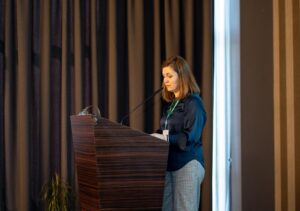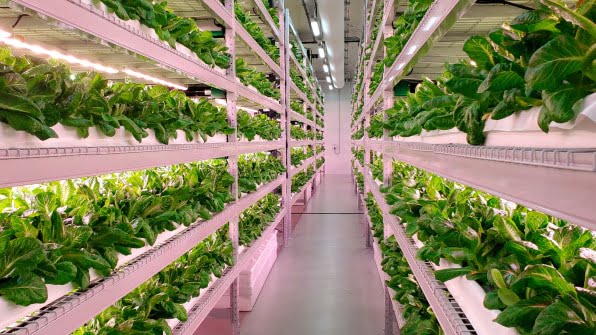Investments in vertical farms are growing globally, and the fact that this trend is observed against the backdrop of the suspension or termination of several large projects on vertical farms in the recent period, as well as changes in the market (which occurred, in particular, as a result of the pandemic, the ongoing war in Ukraine ), inspires optimism, – said Kateryna Poberezhna, international consultant of the Food and Agriculture Organization of the United Nations (FAO), at the International Conference “HortiTech – the latest digital technologies for the fruit and vegetable business – opportunities for Georgia” held in Tbilisi.

She noted that according to AgFunder’s annual report, in 2022, vertical farms, which are part of the “novel agricultural systems” direction, attracted $2.85 billion in investments, which is 21% more than in the previous year.
According to Kateryna Poberezhna, on a global scale, production in vertical farms does not yet affect the market for fresh fruits and vegetables. The production volume of fresh products in vertical farms today is tiny. For comparison: the total area of greenhouses allocated for vegetables and herbs is about 500 thousand hectares (including 40 thousand hectares – of polyethylene greenhouses), while according to Rabobank estimates, vertical farms occupy only a little more than 70 hectares, and even with the level of productivity in vertical farms, which, according to Wageningen University, is on average four times higher than in traditional greenhouses, the supply of products from vertical farms is less than 0.1% of total production. At the same time, the cost of production, in comparison with the traditional greenhouse, is higher. Accordingly, vertical farming should be considered a niche industry. But despite the small scale so far, vertical farming justifies the high investment given the corresponding market demand.
“If there is a market that requires special products, such as micro and exotic greens, or salads for, say, Asian cuisine, or the production of seasonal crops, then vertical farms are almost indispensable. Accordingly, first, there must be a market and demand, and only then the optimal technology should be selected to satisfy this demand, not vice versa,” – Kateryna Poberezhna emphasized.
Read also: Georgian retail chains can save $2.2 million on bananas alone by switching to pooling!
Kateryna Poberezhna noted that a distinctive feature of vertical farms is the possibility of production directly near the consumer. At the same time, the consumer must be ready to pay adequately for fresh products. Such consumers tend to be concentrated in cities, so a vertical farm in or near a city will have a logistical advantage.
According to the specialist, the leaders in terms of production in vertical farms today are the USA and Europe. Still, at the same time, a relatively new market, from this point of view, the countries of the Middle East, is actively developing. There is a hot climate in which it is challenging to grow greens and vegetables traditionally. At the same time, there is a high per capita income, many ex-pats, respectively, and a significant proportion of people are willing to pay for the premium quality products provided by vertical farms.
During the speech Kateryna Poberezhna also considered various business models of vertical production. This is, in particular, standardized production when the company owns the farm and sells its products. These companies differ in their production methods and the crops they grow. In addition, some companies have concluded that the sale of technology is more profitable than the sale of products and provide it to interested companies in various countries (there are already companies selling technologies in Georgia). Another model is farming as a service, where the technological company grows crops based on long-term contracts at a fixed price, but the company remains the farm owner.
The use of the site materials is free if there is a direct and open for search engines hyperlink to a specific publication of the East-Fruit.com website.




